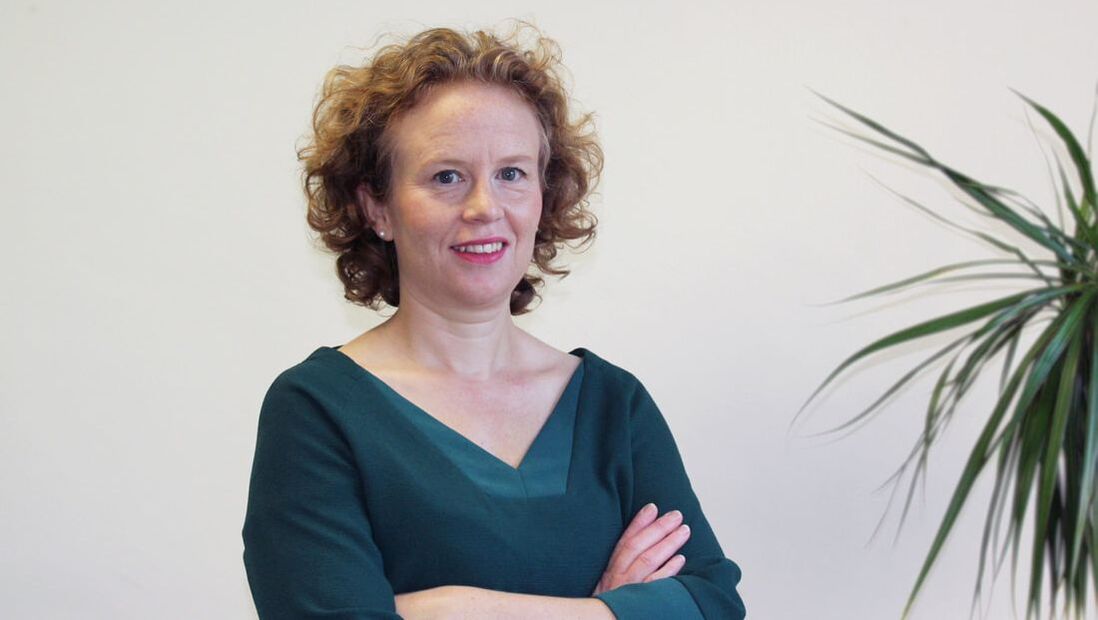News |
 Today, the EAIC, (European Association of Innovation Consultants) is celebrating its two-year anniversary. It was initiated parallel to the first edition of the Research and Innovation days back in September 2019, when the founding group of consultants decided to unite in a Working Group that aimed to represent them towards EU institutions. Marie Latour has been part of the core team of consultants that have set up and structured EAIC over the past 2 years. She has acquired solid experience in the innovation consulting industry, having led ZABALA Innovation’s Brussels office for the past 7 years. She also has substantial experience with European associations and platform management: for 5 years, she led the European Technology and Innovation Platform Smart Networks for Energy Transition (ETIP SNET); prior to that, she was Head of European Projects at SolarPowerEurope, where she started her career in Brussels in 2002. “My intention is to make the European Innovation Consulting profession recognised for its true value. Innovation consultants are essential players who facilitate the innovation process of the European Industry, informing them and ensuring their active participation in EU-funded projects; it is the EAIC’s role to make this responsibility more visible and recognised,” said Marie, when her nomination was announced publicly.
2 Comments
2021-2027: EU Funding instruments for projects close to market (FTI call no longer available)7/9/2021 In the frame of European funding initiatives for the development of technologies and products close to the market with a high degree of innovation, and given that the H2020 Fast Track to Innovation (FTI) instrument is no longer available, two instruments currently stand out:
EIC Accelerator: The European Innovation Council (EIC) Accelerator is designed to support ambitious companies with radically new ideas to develop and commercialize innovative products, services and business models that shape new markets and drive economic growth. Ideally, bringing the Innovation to market which can have high societal and/or environmental impact. The EIC Accelerator programme, and its previous version, the SME Instrument, aims to promote those small and medium-sized companies that want to lead in their sector in Europe with an idea with great potential for innovation and growth. This instrument is one of the most successful calls in Europe thanks to its financing conditions: SME Instrument fund the 70% of the project budget of SMEs (up to 2.5 million euros). In addition, this program allows a CAPEX contribution of up to 15 million Euros in Equity format (dilutive funding) after the completion of the development project. This equity phase is designed to support RD & I intensive SMEs in scaling, internationalisation, and access to large markets to guarantee their competitiveness and guarantee a return on investment The EIC Accelerator Pilot is for individual, non-bankable European SMEs with breakthrough innovations. Support from the EIC Accelerator is supposed to bring these innovations to the European (and global) markets, bigger and faster. By doing so, this should help to drive economic growth in Europe and lead to the creation of new R&D jobs. As regards the readiness of the Innovation, the grant component only applies to activities with a Technology Readiness Level (TRL) of 5/6 to 8. The technology should at least be validated in an industrially relevant environment (TRL 5), and during the project it should demonstrate the technology (TRL 6), improve and optimize the prototype in an operational environment (TRL 7) in order to complete and qualify the system (TRL 8). Activities above TRL 8 can only be funded as equity through blended finance option. This instrument is structured in three phases: 1-Short application: a 5 pages document plus a 10 slides deck and 3 minutes video evaluated remotely. If at least two evaluators positively evaluate all the criteria, the proposal is invited to full application stage. This stage has been implemented in order to select the best applications and avoid oversubscriptions in the full application phase. 2-Full application phase; a 30 pages document plus a pitch deck and financial annex which are remotely evaluated by three evaluators. All criteria from the three evaluators must be positively evaluated by each of them. 3-Pitch. Only the applicants with the highest overall assessments are finally invited to pitch to a panel of jury experts. The panel consists of around 15% business angels, 20% entrepreneurs, 20% venture capitalists, with other experts coming from larger corporates, innovation hubs and accelerators. The pitch consists in a face-to-face or online interview in English and which lasts 30 -minutes. EUREKA EUROSTARS: EUROSTARS is a funding programme to support R&D-intensive SMEs in the development of market-oriented transnational projects. This funding program counts with the participation of up to 34 European countries that are members of the EUREKA network, and since 2016, Canada and South Africa have participated. The EUROSTARS budget for the 2014-2020 period were 1,150 million Euros, of which 25% corresponds to the contribution of the European Commission, and the remaining 75% corresponds to contributions from the EUROSTARS countries through their corresponding funding agencies. Since 2014, more than 1,400 R&D&I projects have been funded for more than 200 million euros, with a success rate of near 28.5%. Regarding the type of participants, up to 72% correspond to R&D&I intensive SMEs, with universities, research centres and large companies being able to participate, with a minimum participation in a consortium of at least two partners from two countries of the EUREKA network. As regards readiness of the Innovation, the grant component only applies to activities with a TRL of 5/6 to 8. The funding rates per country varies from 25 to 60%, depending on the nature of the applicant organization (SME, large industry, RTD) and the corresponding national funding agency. The project preparation process consists of the following steps: 1- Submission of applications, including the technical report segmented into the sections of excellence, implementation and commercialization and market uptake, together with administrative and financial documentation required by the EUREKA secretariat and the national funding agencies. 2- European evaluation phase, including a technical evaluation carried out by an international panel of experts and an evaluation of the financial capacity of the companies. 3- After passing the European evaluation phase, each partner will apply to its corresponding national financial agency, for the financing of its corresponding part in the consortium's budget. Article courtesy of EAIC Member, Euro-funding |
Categories
All
Archives
July 2024
|


 RSS Feed
RSS Feed
